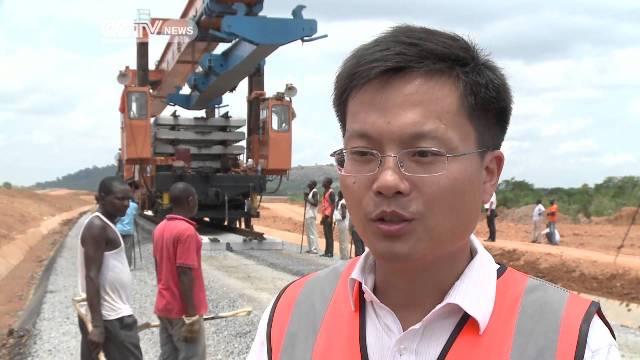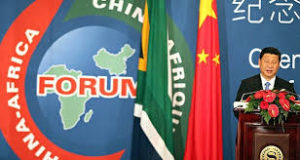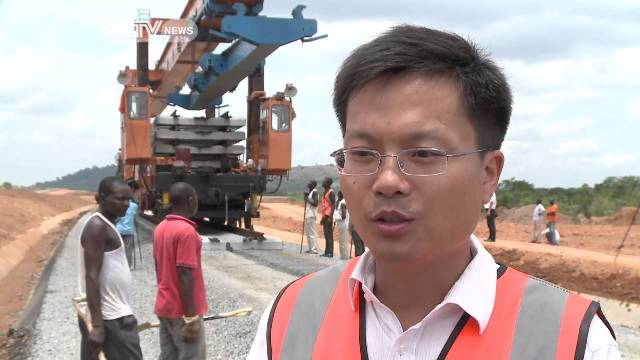Contact us to know more about the Sino-African Fair Trade at dx@daxueconsulting.com
A brief look at the history of Sino-African Fair Trade
 China and Africa have been doing business for the longest time. It has been recorded that the two has been engaging in fair trade dating back as far as 202 BC and AD 220 during the time of silk trading, where Chinese merchants travelled through the ‘Silk Road’ to get their goods from China to other parts of Europe, the Middle East and other parts of the continents. This trade continued on until contemporary times, where China and Africa both enjoyed exchanging goods and resources and continued to support each other’s booming economies. But with the complexities of contemporary economics and the struggle for power within their own governments, will the trade between China and Africa continue to flourish?
China and Africa have been doing business for the longest time. It has been recorded that the two has been engaging in fair trade dating back as far as 202 BC and AD 220 during the time of silk trading, where Chinese merchants travelled through the ‘Silk Road’ to get their goods from China to other parts of Europe, the Middle East and other parts of the continents. This trade continued on until contemporary times, where China and Africa both enjoyed exchanging goods and resources and continued to support each other’s booming economies. But with the complexities of contemporary economics and the struggle for power within their own governments, will the trade between China and Africa continue to flourish?
In 1999, the Sino-African trade volume was US$ 6.5 B which grew to the US $10B in 2000. The Chinese Ministry of Foreign Affairs stressed on the joint efforts of both countries to maintain the lawful rights of its development and also push the creation of new, fair and just political and economic order in the world. By 2005, the total Sino-African trade had reached the US $39.7 B and later on increased to US$ 55B, sealing China as the second largest trading partner of Africa.
There’s an estimate of over 800 Chinese corporations doing business in Africa, who are investing in infrastructure, energy, and banking. In 2011, the trade between Africa and China increased by 33% from the previous year, which includes imports consisting largely of African mineral ores, petroleum, and agricultural products and Chinese exports of manufactured goods. Because of this, the needs to protect China’s investments in Africa have driven a shift away from its traditional non-interference in the internal matters of other countries to new diplomatic and military initiatives. In addition, China has also been engaged in “health diplomacy” towards Africa, which is one of the main successful areas of cooperation. An example of which is an agreement that was made with the Democratic Republic of Congo where China was to help build 31 hospitals and 145 smaller health care centers in 2010, according to Braeckman (2008).
Strengthening Economic relationship of China and Africa
 In October 2000, a forum was established to strengthen the relationship between China and Africa, which was called ‘Forum on China-Africa Cooperation’ (FOCAC). This forum served as a platform where both proclaimed a new mutually beneficial economic, political, and regional alliance. China seeks resources for its growing population while African countries seek investors to generate their economy. A large-scale structural project is proposed to African countries rich in natural resources whereby China funds the construction of infrastructures such as roads, railroads, dams, ports, and airports.
In October 2000, a forum was established to strengthen the relationship between China and Africa, which was called ‘Forum on China-Africa Cooperation’ (FOCAC). This forum served as a platform where both proclaimed a new mutually beneficial economic, political, and regional alliance. China seeks resources for its growing population while African countries seek investors to generate their economy. A large-scale structural project is proposed to African countries rich in natural resources whereby China funds the construction of infrastructures such as roads, railroads, dams, ports, and airports.
Through these efforts, both economies have grown exponentially, with China gaining the necessary experience that will prepare them for larger dealings in the world market, and African nations getting the industries they need to provide for work for its labor industry. Through this partnership, the Chinese have helped provide the African nation with key structural infrastructures; roads, railways, ports, hydroelectric dams, and refineries that also contribute to the expansion of its industries.
It was clear to see that African countries that were in partnership with China are signing on with a future world superpower as the China-Africa alliance provided hope for economic growth for these nations. However, some of the major projects were put on hold as CIF funds depleted without a clear explanation as to where the funds went. As the price of raw material fell, the negotiating position of African countries has weakened with profits intended to repay Chinese loans are collapsing.This has caused increased tension as China worried about risks,and African countries fear to servicing their debt over the long term.
The political interest of China is to bolster its international image and influence while supporting the economic stability of its partners. Chinese exports to Africa from basic everyday commodities to vehicles have risen up Africa’s purchasing power as it is cheaper compared to products from the west. China has also gone to great lengths to emphasize a “peaceful development” in order to increase the credibility of their image as well as tangible diplomatic benefits through African support. With the growth in Chinese demands for commodities slowing down and the price of many raw materials falling; China’s hunger for agricultural goods may grow as China’s population expands and the middle class becomes richer. As this, happens African nations are increasingly suspicious of Chinese firm worrying about unfair deals and ecological damages.
As African nations develop, more demand for transparency, human rights, and environmental causes has been put forward. This challenge can be unfamiliar for China whose foreign policy is heavily based on state-to-state relations, and with little appreciation between African rulers and their people. Both nations have to work together in order to have a more globalized economy. But as long as there are interest and mutual benefits to both nations, the relationship will continuously grow.





